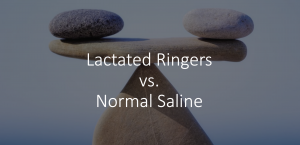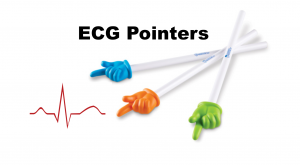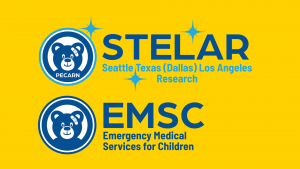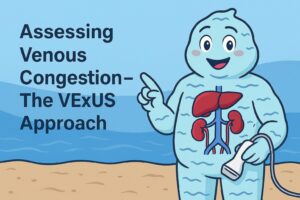Author: Brit Long, MD (@long_brit) // Reviewed by Alex Koyfman, MD (@EMHighAK)
The American Heart Association 2023 Guideline Updates for 2023 were just published. This post will focus on the key parts of the guideline that affect ED evaluation and management.
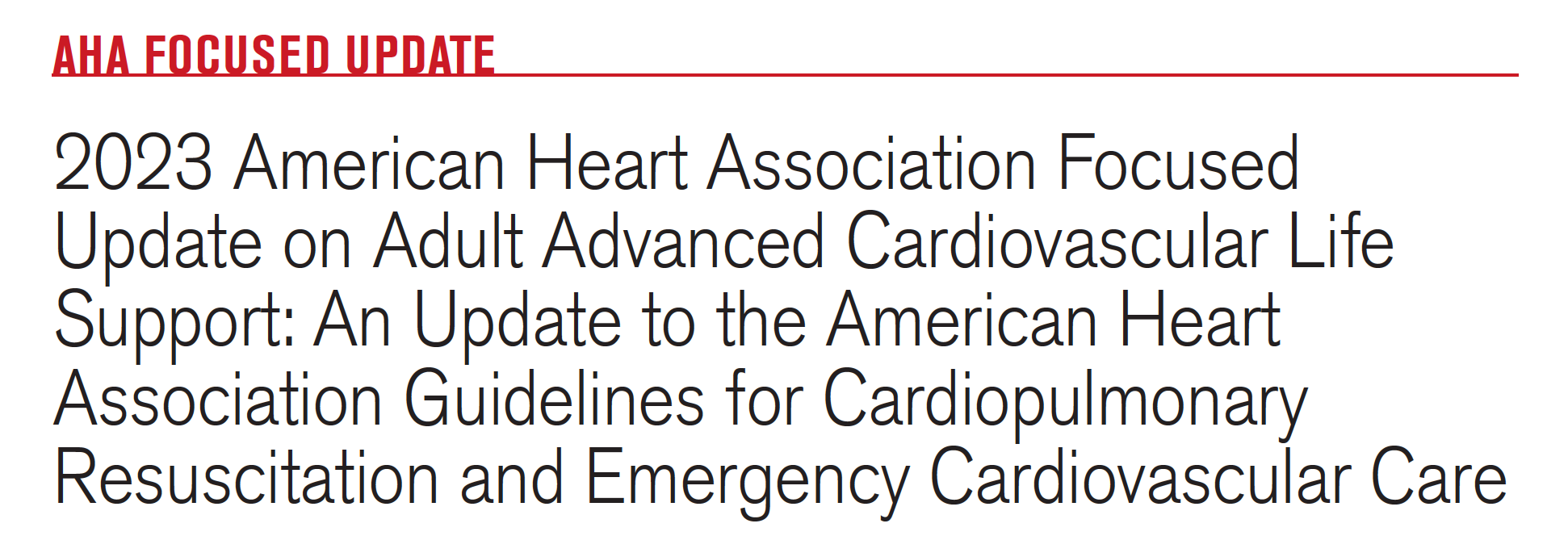
Major Updates
- Avoid routine use of calcium in patients with cardiac arrest. Calcium is associated with harm but is still necessary in certain situations (hyperkalemia, calcium channel blocker overdose) (Level 3 recommendation: no benefit).
- Magnesium does not improve ROSC, survival, or neurologic outcomes, no matter the presenting rhythm (Level 3: no benefit).
- ECPR is reasonable for select patients with refractory cardiac arrest if performed by appropriately trained personnel in equipped systems (Level 2a: moderate).
- Emergent coronary angiography is not recommended over a delayed or selective strategy in patients with ROSC after cardiac arrest in the absence of ST-segment elevation, shock, electrical instability, signs of significant myocardial damage, and ongoing ischemia (Level 3: no benefit).
- All unresponsive adults post ROSC should have a deliberate strategy for temperature control with a continuous temperature target 32-37.5oC recommended (Level 1: strong).
- Avoid routine seizure prophylaxis in adult survivors of cardiac arrest (Level 3: no benefit), but treat seizures if they occur (Level 1: strong).
The Recommendations
All recommendations are designated with a class of recommendation (COR) and level of evidence (LOE). COR is the strength of the recommendation, while the LOE is the quality of scientific evidence.

Vasopressor medications during cardiac arrest
We recommend that epinephrine be administered for patients in cardiac arrest. COR 1, LOE B-R.
It is reasonable to administer epinephrine 1 mg every 3 to 5 minutes for cardiac arrest. COR 2a, LOE B-R.
With respect to timing, for cardiac arrest with a nonshockable rhythm, it is reasonable to administer epinephrine as soon as feasible. COR 2a, LOE C-LD.
Vasopressin alone or vasopressin + methylprednisolone in combination with epinephrine may be considered in cardiac arrest but offers no advantage as a substitute for epinephrine. COR 2b, LOE B-R.
With respect to timing, for cardiac arrest with a shockable rhythm, it may be reasonable to administer epinephrine after initial defibrillation attempts have failed. COR 2b, LOE C-LD.
High-dose epinephrine is not recommended for routine use in cardiac arrest. COR 3, No benefit, LOE B-R.
Editorial Comment: Epinephrine is still recommended, but do not use high dose epinephrine. Consider administering epinephrine after defibrillation in those with shockable rhythms.
Nonvasopressor medications during cardiac arrest
Amiodarone or lidocaine may be considered for ventricular fibrillation/pulseless ventricular tachycardia that is unresponsive to defibrillation. COR 2b, LOE B-R.
For patients with OHCA, use of steroids during CPR is of uncertain benefit. COR 2b, LOE C-LD.
Routine administration of calcium for treatment of cardiac arrest is not recommended. COR 3, No benefit, LOE B-R.
Routine use of sodium bicarbonate is not recommended for patients in cardiac arrest. COR 3, No benefit, LOE B-R.
Routine use of magnesium for cardiac arrest is not recommended. COR 3, No benefit, LOE B-R.
Editorial Comment: No routine calcium, sodium bicarbonate, or magnesium. Amiodarone or lidocaine may be consideration to Vfib/pulseless Vtach that is unresponsive to defibrillation.
Extracorporeal CPR
Use of ECPR for patients with cardiac arrest refractory to standard ACLS is reasonable in select patients when provided within an appropriately trained and equipped system of care. COR 2a, LOE B-R.
Editorial Comment: ECPR may be considered in patients refractory to standard ACS in the right situation. Appropriately trained personnel and an equipped system of care are a must.
Percutaneous coronary intervention after cardiac arrest
Coronary angiography should be performed emergently for all cardiac arrest patients with suspected cardiac cause of arrest and ST-segment elevation on electrocardiogram. COR 1, LOE B-NR.
Emergent coronary angiography is reasonable for selected adult patients without ST-elevation on electrocardiogram but with elevated risk of significant coronary artery disease where revascularization may provide benefit, such as those with shock, electrical instability, signs of significant ongoing myocardial damage, or ongoing ischemia. COR 2a, LOE B-NR.
Independent of a patient’s neurologic status, coronary angiography is reasonable in all post–cardiac arrest patients for whom coronary angiography is otherwise indicated. COR 2a, LOE C-LD.
Emergent coronary angiography is not recommended over a delayed or selective strategy in patients with ROSC after cardiac arrest in the absence of ST-segment elevation, shock, electrical instability, signs of significant myocardial damage, and ongoing ischemia. COR 3, No benefit, LOE B-R.
Editorial Comment: Yes to PCI after arrest with STEMI on ECG. Emergent coronary angiography is not recommended over delayed or selective strategy if there is no STEMI, shock, electrical instability, evidence of significant myocardial injury, and ongoing ischemia.
Temperature control
We recommend all adults who do not follow commands after ROSC, irrespective of arrest location or presenting rhythm, receive treatment that includes a deliberate strategy for temperature control. COR 1, LOE B-R.
Editorial Comment: If the patient cannot follow commands after obtaining ROSC, control temperature.
Performance of temperature control
We recommend selecting and maintaining a constant temperature between 32° C and 37.5° C during postarrest temperature control. COR 1, LOE B-NR.
We recommend hospitals develop protocols for postarrest temperature control. COR 1, LOE B-NR.
It is reasonable that temperature control be maintained for at least 24 h after achieving target temperature. COR 2a, LOE B-NR.
There is insufficient evidence to recommend a specific therapeutic temperature for different subgroups of cardiac arrest patients. COR 2b, LOE B-NR.
It may be reasonable to actively prevent fever in patients unresponsive to verbal commands after initial temperature control. COR 2b, LOE C-LD.
Patients with spontaneous hypothermia after ROSC unresponsive to verbal commands should not routinely be actively or passively rewarmed faster than 0.5° C per hour. COR 2b, LOE C-EO.
The benefit of strategies other than rapid infusion of cold intravenous fluids for prehospital cooling is unclear. COR 2b, LOE B-R.
We do not recommend the routine use of rapid infusion of cold intravenous fluids for prehospital cooling of patients after ROSC. COR 3, No benefit, LOE B-R.
Editorial Comment: Target 32° C to 37.5° C in survivors who remain unresponsive.
Seizure and other epileptiform activity
We recommend treatment of clinically apparent seizures in adult survivors of cardiac arrest. COR 1, LOE C-LD.
We recommend promptly performing and interpreting electroencephalography (EEG) for the diagnosis of seizures in patients who do not follow commands after ROSC. COR 1, LOE C-LD.
Monitoring EEG repeatedly or continuously is reasonable for patients who do not follow commands after ROSC. COR 2a, LOE C-LD.
Treatment of nonconvulsive seizures (diagnosed by EEG only) is reasonable in adult survivors of cardiac arrest. COR 2a, LOE B-R.
A therapeutic trial of a nonsedating antiseizure medication may be reasonable in adult survivors of cardiac arrest with EEG patterns on the ictal-interictal continuum. COR 2b, LOE C-EO.
The same antiseizure medications used for treatment of seizures caused by other etiologies may be considered for seizures detected after cardiac arrest. COR 2b, LOE C-LD.
Seizure prophylaxis in adult survivors of cardiac arrest is not recommended. COR 3, No benefit, LOE B-R.
Editorial Comment: Avoid seizure prophylaxis but treat clinically apparent seizures in cardiac arrest survivors. Consider EEG monitoring for patients who remain comatose after ROSC.
Reference:

